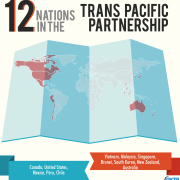How to Find a Job in Asia (Vietnam)
It’s great that you’re interested in working in Vietnam, but it’s time to get more specific because Vietnam has different regions, cities, and lifestyles to choose from. Finding a place where you can grow professionally and personally can be a bit tricky but it’s definitely possible–especially once you narrow down your living and working options. Expats tend to end up here in a variety of ways: some people were sent by their foreign companies, others acted as consultants to local or foreign entities, another portion decided to take an extended vacation here once they arrived, and for another segment there are clear cultural ties to the country.
If you don’t fall into any of these groups then Vietnam has piqued your interest for reasons other than having already experienced it, which can be riskier from a company’s perspective since Vietnam is not everyone’s cup of tea and some people choose to move on after briefly experiencing life here. Yes, there is something special about Vietnam that can draw people in but there are also many things which can drive a person out of the country as well. Living and working in Vietnam can be very challenging at times so if you are able to withstand it or thrive here then congratulations are in order and you should be proud of yourself because it’s not something that everyone can do.
Searching in Vietnam
Therefore, it’s best to get out here on the ground and network to show that you are committed to working in Vietnam until you find something suitable. First, you should decide which city you would like to work in based on your research about the Vietnam market; you should be able to clearly explain why you are interested in working and living in Vietnam, especially if you have never been here before or you don’t have any cultural ties to Vietnam.
A brief overview of some cities in Vietnam:
Ho Chi Minh City (Saigon, in the south): Fast-paced, more cosmopolitan, more international, more western-oriented. Great for entrepreneurs, FMCG, startups, business people, artists, marketing agencies, etc.
Hanoi (the nation’s capital, in the north): More traditional, slower pace, tighter expat community, “early to bed, early to rise mentality.” Great for NGOs, diplomatic corps, building relationships in the local government, niche opportunities, etc.
Da Nang (in the central region): Surrounded by great beaches, more laid back, cleaner, an up-and-coming city with quick growth, especially in the tech sector, and third biggest economic center, etc. Great for those who are seeking “something different” in Vietnam beyond the standard two choices above.
Of course, there are other cities to choose from in Vietnam, but the above are the usual ones that expats end up living in.
So after you have picked a city, you will need to pick a date that you will move to that city (you can get a three month visa—single or multiple entry—from your local embassy/consulate/mission or through www.vietnamvisa.com for a visa on arrival). You’ll need to start networking at least one month out from when you will arrive in the city. Make a list of the companies in your industry that are operating in your city of choice as well as positions that are available throughout the country (you have to go where the opportunities are, after all).
Resources:
- LinkedIn (www.linkedin.com)
- Vietnam Works (www.vietnamworks.com)
- Indeed.com (www.indeed.com.vn)
- Monster (www.monster.com.vn)
- ITViec (www.itviec.com)
When you apply to positions found on online job boards, you can mention the date which you will arrive in your cover letter and any experience that you have in Vietnam or Asia. In terms of networking, start by connecting with people in your field: ask them to meet for a coffee once you arrive in town, or for successful advice, or what’s your industry like in Vietnam compared to other countries (maybe you both have lived in the same city elsewhere). You can also try reaching out to recruiting firms to see if they are searching for candidates with your profile—although this route is better for executives. It would also be wise to check for upcoming local tradeshows or conferences that you can participate in and adjust your flight accordingly. It would be a shame to miss an important yearly event by a day or two when you could have started your job search off strong.
Before you leave for your current destination, you should have an updated CV (the format is more detailed in Asia than in the west), an elevator pitch, and even business cards with your name, email, and mobile number (if you can get a friend to buy you a SIM card in Vietnam before arriving). If you wait until you arrive in Vietnam then try to get a 10-digit number (as opposed to a 11-digit number) with as many sixes and eights (lucky numbers) as possible. Viettel is a good choice as a network provider due to its extensive coverage throughout Vietnam in both urban and rural areas.
Landing in Vietnam
Once you arrive in town call up people to follow through on the meetings you set up before arriving in country. Go to your Chamber of Commerce meetings and events, and attend as many relevant networking events and activities as possible.
Resources:
- City Net Events (www.citynetevents.com/)
- Chamber of Commerce (e.g., www.eurochamvn.org/)
- Meetup Groups (e.g., www.meetup.com/hanoiinenglish/)
- CouchSurfing Events (e.g., www.couchsurfing.org/n/events/all-about-cs-hanoi-hanoi–2)
- Sports Clubs (e.g., www.Facebook.com/hanoi.ultimate.club)
Every expat has experienced his/her first day in a new country so most are willing to help out or advise newcomers on potential pitfalls and ways to limit their liabilities here. However, not everyone will have or make time to meet you for coffee so don’t take it personally if someone doesn’t get back to you—be professional and keep good relations as much as possible since the world is a small place.
Volunteering to help organize events or to work events is also another way to make connections with people who are more familiar with the business community than you are. It also allows you to make a case for why you would be an asset to an organization. Keep in mind that to do that effectively you must research the organization that you are interested in working at. Differentiation is the name of the game here in order for your qualifications and interests to fit in with a company’s mission and culture.
Potential Barriers
- Cost
- Commitment
- Lack of support system
Buying a one-way ticket or carving out up to three months of your life to search for a job might seem like quite the undertaking. It is, for sure, but if things don’t work out then you can always buy a return trip ticket after a three month vacation. The monthly average rent for a room here is between $165 and $300 plus around $50 in utilities (depending on room/person distribution). Depending on where you are coming from, a flight can be several hundred dollars for a one-way ticket to a couple thousand dollars or more for roundtrip tickets. Yes, it is expensive but the upside is that you will have an experience that not many people get to have: living in a new country, learning a different way of doing things, making friends from other parts of the world, making a direct impact on those around you, and learning new things about yourself. In the long run, three months is a short time to take a healthy risk that will most likely change your life for the better.
If you don’t know anyone in Vietnam and have never visited before then for sure it will be that much harder for you to network. Perhaps traveling here first is in order to see if you enjoy Vietnam as a tourist (you could do a regional tour as well to see if another place is a better fit). You can schedule some coffee meetings during this “exploratory” phase and then after doing some more primary and secondary research you can decide for yourself if Vietnam is the place for you. If you do decide to come back then you’ll have some contacts in place and will be able to expand your network accordingly.
Don’t be discouraged if it takes longer than you expected to find a job—you’re just proving that you really want to be in Vietnam and sooner or later someone will recognize and appreciate your efforts. Stay focused on the long-term and don’t try to take shortcuts here or venture into the darker side of Vietnam. In a country that is not yours, the locals will always have the upper hand as they have the language, relationship, and experience advantages. There is a high risk that you will end up on the wrong side of things if you embark in any of their schemes. That also goes for other expats you meet—Vietnam attracts different kinds of people for different reasons so use your judgment and trust your intuition in new or ambiguous situations.
Suggestions for Success
- Learn the local language (you will save so much time and build relationships more quickly)
- Learn the local business culture (you will be able to avoid faux pas and participate and contribute effectively and appropriately in business settings)
- Learn the history (the Chinese, the French, the Japanese, and the Americans have all directly influenced Vietnam’s history at one point or another—how might that affect the Vietnamese perspective toward foreigners?)
- Understand the “pulse” of the city and country (What might your city be like in a year? Or five years? What are the major ongoing infrastructure or development projects?)
- Recognize opportunities and how to leverage them, and your global network (Do you see a product or service that Vietnamese consumers would want or need? Do you have a friend who has skills that would be valuable to a company in Vietnam? Make connections, both in person and for potential opportunities.)
Being based in Vietnam makes all of the above suggestions easier to implement. Even prior travel to Vietnam looks more credible when applying for jobs or talking to hiring managers. The surest way to finding a position where you can add value and grow is by finding an organization whose mission, values, and projects you are interested in. Then, you can create a strategy for getting to know people in that organization and from there the possibilities are endless. Remember, you are looking to get your foot in the door so stay focused on gaining experience and time working in Vietnam—from there you can prove your value to your organization and create your own career path in the country or region. Good luck!










Thank you for the sound advice. I absolutely agree that the most important step in finding a job in Vietnam is to just go.. I have lived in Vietnam for nearly one year, and while I came over with a job (that I have subsequently left), it is by networking and chasing opportunities I have found work here. Life in Vietnam works very differently than life in European/North American countries. You can work part time here, and still make enough money to live a pleasant and good life.